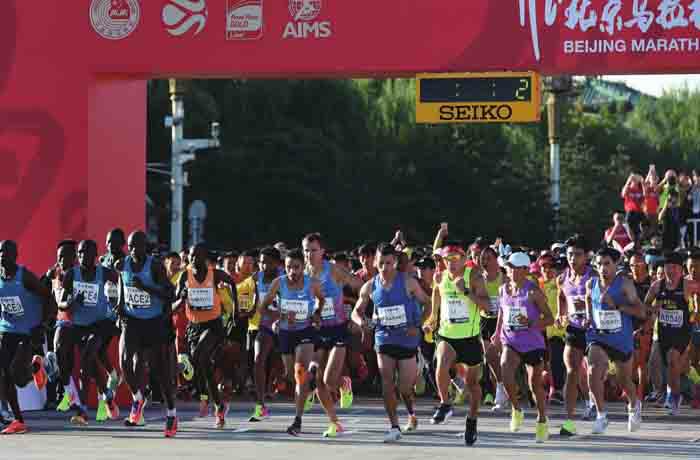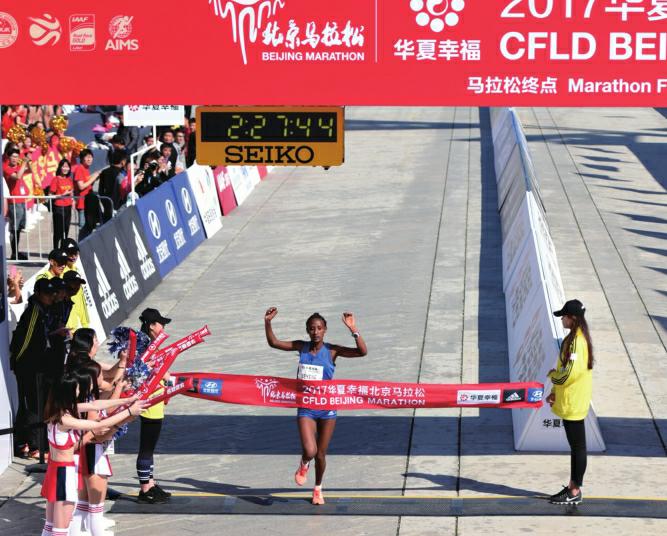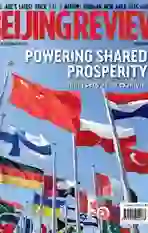Fervor for Running
2017-10-22ByWeiYao
By+Wei+Yao
The 2017 Beijing International Marathon, held on September 17, attracted more than 30,000 runners from over 30 countries. The participants started at Tiananmen Square and headed for the fi nishing line in the Olympic Park via a circuitous route of just over 42 km.
The Beijing Marathon, which entered its 37th edition this year, is the most timehonored marathon in China. Some marathon lovers therefore refer to it as “Chinas national marathon.” When the fi rst edition was held on September 27, 1981, it was the fi rst time that China had staged such an event, as the nation had just adopted the policy of reform and opening up. Only 86 runners from 12 countries participated in the race at that time.
Due to the high requirements placed on participants, the first dozen Beijing Marathon competitions were open only to professional athletes. But, in the mid-1990s, it was opened to everyone. In 1996, a 10-km run was established, and in 1998, a half marathon and mini marathon were added. In 1999, the number of runners had sharply increased to 38,000.
To align with the international standard, the Beijing Marathon has consisted of only a full marathon since 2015. Every year, around 30,000 runners are selected randomly out of as many as 100,000 applicants for the race.
The Beijing Marathons success reflects the popularization of mass participation sports in China. More and more people are taking up running to improve their health, and the large number of prospective participants is the driving force behind the rise of marathon events in Chinese cities.

According to statistics, Chinese cities hosted 22 marathon competitions in 2011. But, 2015 saw a sharp increase in the number to 134 and the momentum continued in 2016 when 328 events took place. In 2017, more than 500 marathons are scheduled to be held in China, according to Wang Dawei, Deputy Director of the Athletics Management Center of the General Administration of Sport of China.
Municipal governments in more and more Chinese cities have found that hosting a marathon will help make their city better known and encourage more residents to take physical exercise. The fast-growing demand for services and the huge number of runners can create business opportunities and drive the citys economic development in long term. Its no exaggeration to say that marathons are growing to be a pillar of Chinas sports industry that has undergone explosive growth in recent years.
China is learning from countries with welldeveloped marathon events like Japan and the United States. The growing business and consumption will help promote marathons to spread to more places across China. China is now on the road toward this goal, and the Beijing Marathon is leading the way.endprint
